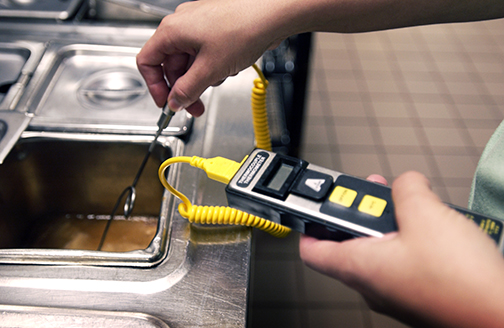Food Safety
Food Safety
Food Safety is a key component of global challenges to both health and resources and is becoming increasingly complex given the global dimensions of food supply, the need to reduce food waste, and the growing importance of the efficient use of natural resources. Food safety impacts all areas of the chain from production, transportation and storage, processing, distribution, marketing and regulation.
Food safety is the current target of tremendous interest, effort, and spending worldwide, but yet, is an area in which shortages of expertise are manifest. Individuals with this knowledge and training are often are heavily recruited for employment. The food safety minor was developed by an interdisciplinary team of faculty with expertise in food safety from several NDSU Colleges and Departments.
The minor in Food Safety (SAFE) requires completion of a total of 16 credits. Eight of these credits are the SAFE core courses, which are completed on-line. The remaining 8 credits are electives which may be selected from a wide range of disciplines including Agribusiness and Applied Economics, Animal Sciences, Emergency Management, Food Safety, Food Science, Microbiology, Plant Sciences and Plant Pathology. A minimum of eight credits must be taken at NDSU.

